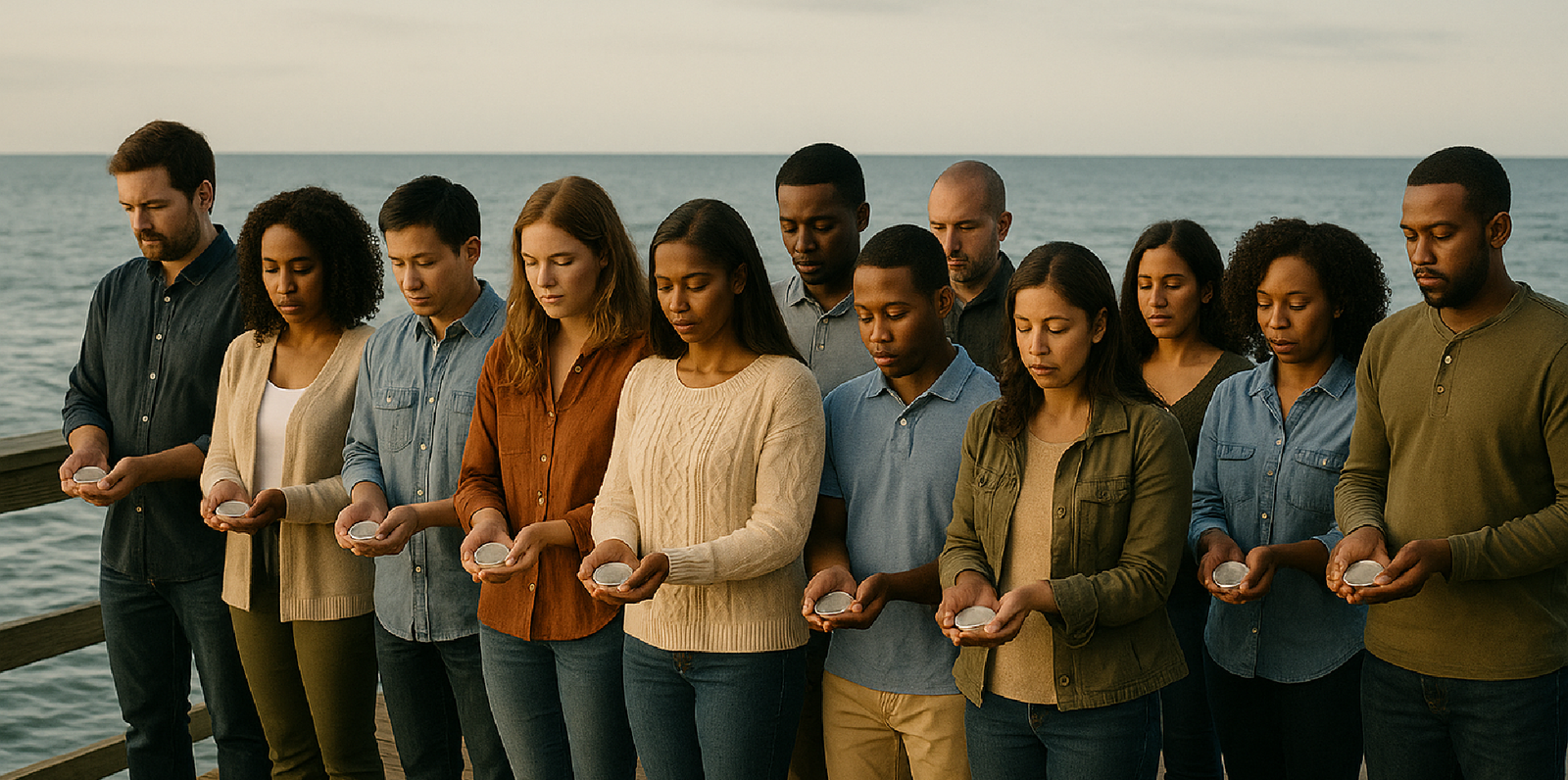
Why I Got Into the Grief Game
The job market is rough right now. I’m piecing together gigs where I can, dodging ghost jobs and fake listings that lead to paid job boards. After months of frustration, I asked myself: What can I offer that’s real, helpful, and mine?
I made a list of my best skills. Three things stood out:
Crisis communication strategy
Puerto Rican cooking
Grief
Grief won
Not because I love grief (spoiler: nobody does), but because I’ve been living in it. In the last few years, I’ve lost both of my parents and one of my best friends. I’ve also said goodbye to more distant friends and relatives — the kind of losses that don’t always make headlines in your life but still leave you reeling. The cumulative weight of those goodbyes adds up in ways people don’t talk about.
I’ve cycled through guilt, loneliness, anger, regret, and nostalgia. And I know I’m not the only one. As we get older, we lose more people. More pets. More pieces of who we were.
And yet, when I looked for resources, so much of what I found felt hollow or generic.

What I Kept Seeing
Where I Fit In
- Advice that contradicts itself: Give them space… but also show up constantly.
- Well-meaning comments that cut deep instead of helping.
People awkwardly avoiding the topic altogether because they don’t know what to say. - A fear of mentioning the person who died, as if saying their name might break you — even though silence can feel worse.
- An unspoken expectation that grief follows a timeline, when in reality there isn’t one.
I’ve always been the one friends call when things get bad — to write a eulogy, to plan a celebration of life, or just to sit in the quiet. Part of that comes from my background in crisis communications. I know how to calm a storm. The other part is my irreverent streak that somehow makes people laugh when they least expect it. Sometimes a tiny smile through tears is the only relief we get.
I’m not perfect. I’ve said the wrong thing. I’ve frozen up. But I’ve learned what helps: showing up, holding space, and listening — even when there are no perfect words. Especially then.
Why This Site Exists
I want this space to do two things:
- Help you feel less alone in your grief.
- Offer words and tools that actually help, not make things worse.
If you’ve ever thought:
- No one seems to get it.
- I don’t know what to say.
- Why do I feel nothing right now?
You’re in the right place.
Grief is messy, human, and somehow sacred. You don’t have to do it alone.
2 Comments
Leave a Reply to Michelle Tompkins Cancel reply
Coming Next
Grief brings up anxiety in ways I never expected — racing thoughts, tight chest, sleepless nights. One of the simplest tools that helped me calm down is the 4-7-8 breathing technique. In my next post, I’ll share exactly how I use it, why it works, and why it became my go-to in the middle of panic at 3 a.m.
Join
Social Media


Grief is hard and hits people in different ways. I lost my first husband at 36, then 6 years later within 9 months I lost 6 family members (father, 2 sisters-in-law, aunt, uncle, cousin) and 3 friends. Then my second husband, step-son and mother. I guess My coping mechanism is to shut down. when someone dies I go “dead” inside. When my son-in-law passed in January, I had a difficult time processing it. Almost no emotions. I’m not sure how to process all this.
Hi Rena,
Thank you for reaching out. I am so sorry for your losses. Grief is so hard and our minds often shut down as a way to cope. Cope with it in your own way. If you find comfort in grief groups, you may want to try that. If you prefer being out in nature or just being with friends and family. Try that. No one can tell you how to grieve. I hope you have a good support system to help you through this terrible time. Sending you love and moral support.